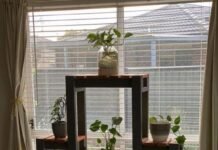The planting season is around the corner, but you don’t know where to begin? While starting gardening, it may seem like there is much to know. Additionally, you may ask yourself several questions such as “how am I going to plant my veggies?” “Which type of soil is best for my crop?” “How am I going to mulch?” well, nature is a good teacher, but we seem to have forgotten or have no idea. The more the Gardening Tips, the more you learn what is important and what is not.
But you no longer need to worry. The Gardening Tips I’m going to cover in this article will make your work easier, and gardening will be fun!
Plan Your Garden Layout
Before diving into gardening, take some time to plan your garden layout. Consider the available space, sunlight exposure, and the types of plants you want to grow. Sketch a rough plan, allocating areas for different plants, including vegetables, herbs, flowers, and shrubs. Take into account the height and growth habits of the plants to avoid overcrowding. Planning your garden layout will help optimize space, ensure proper sunlight, and facilitate easy maintenance.
Prepare and Nourish the Soil
The key to a successful gardening lies in healthy soil. Start by testing the soil’s pH level and nutrient content. Most plants prefer a slightly acidic to neutral pH range. Amend the soil accordingly by adding organic matter such as compost or well-rotted manure to improve its fertility and structure. Organic matter enriches the soil with essential nutrients and promotes beneficial microbial activity. Regularly mulch the soil to retain moisture, suppress weeds, and provide a slow-release source of nutrients.
Start with what you can manage.

Don’t be tempted to grow many varieties of crops. The exotic photos can be luring, and avoiding them can be quite challenging. However, don’t grow something that you won’t use or eat. Grow your favorite crops and what you enjoy cooking. Try out a few varieties but don’t go extreme.
Pick the right mulch.
Mulching is the perfect way to retain soil moisture, and it prevents weeds from sprouting. As a reminder, deep mulching may give your seedlings difficulty sprouting. Be cautious when using grass hay as it may contain seeds.
Water Efficiently and Regularly
Proper watering is vital for the health and growth of your plants. Watering requirements vary depending on the plant species, climate, and soil type. In general, it is better to water deeply and less frequently rather than shallowly and frequently. This encourages the plants’ roots to grow deeper, making them more resilient to drought. Water early in the morning or late in the evening to reduce evaporation. Consider using drip irrigation or a soaker hose system to deliver water directly to the roots, minimizing water waste and promoting efficient absorption
Consider light requirements
Veggies and other leafy crops all have different light requirements. When choosing where to locate your vegetable garden ensure that the site receives full or partial sunlight. Grow specific crops that can do well in that area based on the light requirement.
Consider your soil drainage.

Oxygen is one of the requirements for plant germination. Wet soil has got no air pockets for the roots to grow. Many plants thrive well in well-drained soil. Therefore improve your soil drainage by using organic materials.
Don’t plant in wet soil.
Digging in wet soil destroys soils structure. Therefore, it is good to wait until the ball is no longer formed when you squeeze the soil in your hand.
Deadheading
This is one of the best practices, especially for perennials and annuals. That’s because flowering, setting seeds, and dying are the goal of annuals. Deadheading helps remove old blossoms and encourages them to thrive and grow stronger.
Understand the length of your growing season
So, how long is your planting season? It’s good to understand so you can avoid growing some crops.
Thinning
Your seedlings struggling over nutrients is the last thing you’d wish to see. You can avoid this spacing your plants adequately. Imagine how big your crops will be at their maturity and consider the recommended spacing. Thin when your seedlings are a few inches tall.
Frequent watering
Each crop has a different water requirement. Too much watering may cause rot to some plants, while less watering can cause wilting and kill your crops. As a reminder, many plants need a 1-3 watering a week, depending on your regional climate.
Proper weed control

The best wedding techniques are hand weeding. Hoeing can also be the best way to control the weed. However, deep hoeing can resurface the weed seeds, so they germinate. Weed regularly and early to prevent weeds from entering your seedlings.
Fertilizer is not always the solution.
Normalize using organic amendments. The best soil structure is often easy to dig, crumby, and has good drainage. This allows perfect oxygen circulation within plant roots. If it’s a must you use fertilizer, use organic fertilizer for soil nitrogen, potassium and phosphate.
The bottom line
Understanding gardening tips is the key to high yielding. You don’t have to use artificial products to get the most from your crops. You can garden organically and ripe even more than the artificial gardeners. I’m not discouraging you. What I’m trying to say is artificial products are not among the best gardening ideas.
READ NEXT:Tips to Grow a Wildflower Garden
RELATED TOPICS: Gardening ideas at home
Naturalistic planting design: plants to use and design ideas
Living Highlife is a Luxury Treehouse for a Family




